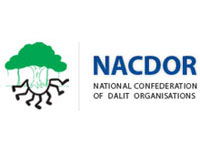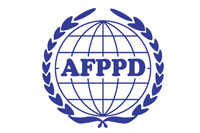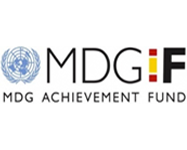Background
Kibera Primary school was founded in 1953. The school has a population of 2193 pupils and 28 teachers. The first sponsors to the school were returning Sudanese soldiers who had fought in the first and Second World Wars. There after the British government supported the school’s infrastructure development opening it up to other donors who would later come in to implement supporting projects. The school was run as a government accredited school till 1956 when its management was handed over to the city council. The city council was to work hand in hand with the community to build ownership for the direct beneficiaries.
In 2008, through the Direct Aid Program (DAP project), Focus On Africa Development (FOAD) Inc, an Australian owned company with the support from the Australian High Commission in Kenya embarked on a project to rehabilitate an existing block of toilets in the school.
The initial aim of this rehabilitation was to upgrade the facility into a modern washroom facility with running water and a flushing system. According to a FOAD brochure available on their website, the focus of the project was to rehabilitate a toilet block consisting of 12 toilet units, the school sewerage system, water system and drainage. This saw the project implementers, FOAD buy and install a water tank to serve the toilets by maintaining proper sanitation standards.
The project was never completed even as the then Australian High commissioner, Miss Lisa Fillpeto made a trip to officially open the facility for use . A water tank was installed but the sustainability of the water flow to the toilets was not accounted for.
It was during this visit that the commissioner proposed the construction of a similar project to meet the needs of the girl child. This meant modern washrooms with a changing room. The proposed structure was put up and construction begun towards the end of 2010. However, this also did not see the light of day. It has since remained locked, incomplete, out of use and neglected to this day.
Citizen’s voice
In July 2011, Huduma www.huduma.or.kereceived the first complaint on Kibera primary. The citizen’s report indicated that the school had lacked water for the past eight years. The concern was neither foreign to the Prime minister nor the town clerk, both of whom had visited the constituency, the school and were informed of the concern. The citizen’s and the school management had raised the matter with the highest authority in the land. It was now beyond them.
The first reporting as on Huduma Website is displayed below

In April 2012, another citizen raised an alarm over Kibera primary school this time, on the status of sanitation in the school that is jeopardizing the health of the pupils in the midst of duplicated donor projects.
The report as on Huduma website is displayed below

Amplification of the Citizen’s voice
On 2nd April 2012, SODNET wrote the Australian High Commissioner to Kenya; firstly to, highlight the story as his office funded the project, secondly to seek verification on the citizen’s report. The commissioner called SODNET back on the 3rd April, 2012 wanting to know more on the Huduma platform and SODNET..It was during this phone conversation that she requested SODNET go on ground to verify the citizen’s report as she sought documentation of this project. She further promised that the next contact whether by mail or in person would involve sharing of both party’s, status and verification reports. SODNET honored its part and sent out a status verification report on the 6th April 2012. No communication was done by the Australian High Commission’s office to SODNET. On the 12th April, 2012 SODNET made a follow-up call to the commissioner’s office to find out why no response was accorded as promised. It was during this call that SODNET sought to clarify a few questions with the secretary to the commissioner:
- Did the Australian High Commission fund the proposed two projets in the school?
- Did the Commission contract FOAD as the implementing company of the projects?
- Did the project implementers carry out a needs assessment before carrying out the projects?
- Was FOAD aware of the existing challenge of access to water by the school and did FOAD communicate this to the donors?
- Was the Commission aware that both projects were incomplete?
After this phone call, the Secretary to the High Commission provided SODNET with an email address of a contact person at FOAD who would take up the above queries and any other arising matter with FOAD. On the 11th April 2012, a letter attaching the citizen’s report and SODNET’s verification report was mailed to the contact person at FOAD. No response has been received from them to date.
Photos on FOAD’s website VS status on ground


Pictures of Status on ground:
- Section of the wall of the refurbished facility with donors logo
- Logo of the project implementors
- Section of the facility showing the installed WC with disconnected pipes
- A section showing the shared facility; the last two are used by the girls while the first and the urinals are used by the boys.

Other existing Projects in the school:
Funded by UNICEF

Conclusion, way forward
The rehabilitation process was substandard. A water storage tank was put in place; however the installation of the water pipes and cisterns that would facilitate the functioning of the facility was not completed. In addition, the finishing of the facility walls and roof was never done. In an incomplete state, the facility remained locked for a year and no communication of progression was sent to school administration. This is when the school administration, based on the critical need of the school to access the facility, decided to open up the facility for the access of the pupils and embarked on spending Ksh. 5,000 a week on water for the upkeep of the facility.
SODNET’s review of the situation found that:
- There was a lack of a participatory approach in implementing these projects. The school administration were not consulted or involved in these projects.
- FOAD did not carry out a needs assessment in the school. This is evidenced by the fact that the set up to construct a modern toilet facility that would consume a lot of water in the face of the school lacking water for more than eight years. The donors have failed each time to plan for a constant water supply for these projects.
The situation on ground as per SODNET’s assessment was pathetic and embarrassing. We consider that all stakeholders involved in these projects failed to carry out project monitoring to establish whether the projects they funded achieved the required purpose and standards.
Apendices to the story:
Letter to the Australian High Commission










